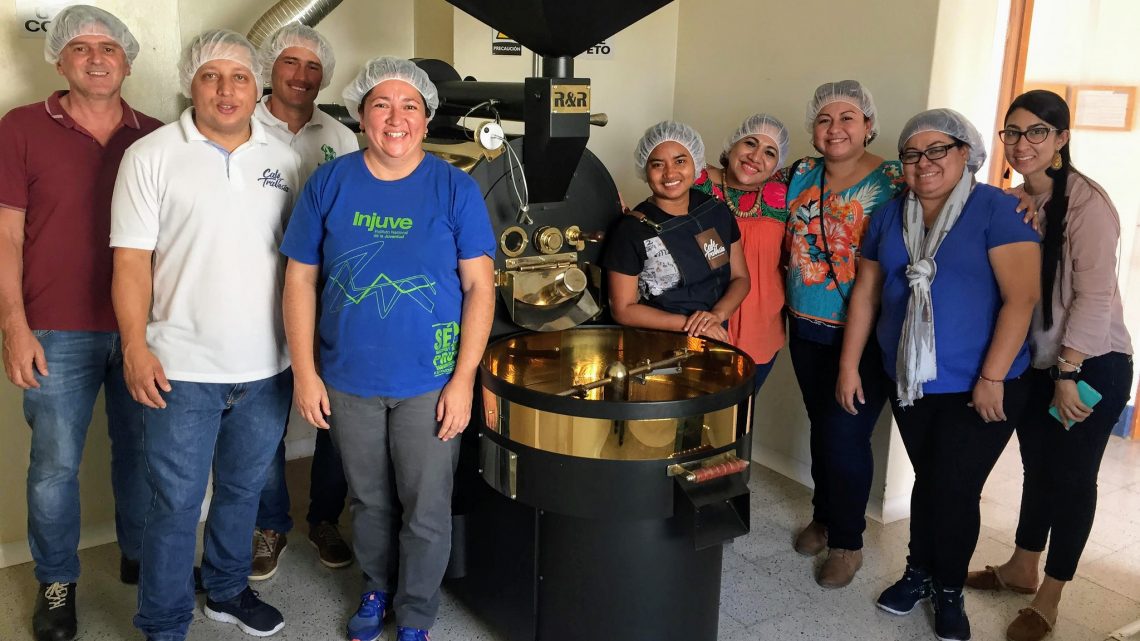EUROsociAL supports to the National Youth Institute to include a strategy of special care for rural youth

A technical delegation from the National Youth Institute (INJUVE) and the Technical and Planning Secretariat (SETEPLAN) of El Salvador, accompanied by the international expert Jaime Velilla, made a technical visit to the city of Medellín and to some towns of the State of Antioquia in Colombia. The visit was part of the support being given from the EUROsociAL+ Programme to the National Youth Institute to include a strategy of special care for rural youth as part of the JóvenES con Todo youth employment programme.
The JovenES con Todo Programme offers services for access to the market, training and employability. Until now it has focused on a mainly urban youth population, but it is necessary to formulate a new strategy enabling better service for rural youth and their specific needs.
The support of EUROsociAL is aimed at developing this strategy, which will offer young people from rural areas new opportunities thanks to the link to agricultural activities that are entering a new stage of development (due to climate change, the demand for healthier food and the recognition of their traceability or origin), with productive chains (coffee, cocoa, tourism) and opportunities for new business and specialised training services.
The objective of the visit to the State of Antioquia was to exchange useful knowledge with Colombian entities on public policies, programmes and projects to promote employability, employment and the entrepreneurship of rural youth. Much emphasis has been placed on projects in the coffee sector, as the State of Antioquia is known for this crop, and on reflecting the Salvadoran context.
The Salvadoran delegation initially met in Medellín with officials from COMFAMA (Caja de Compensación Familiar de Antioquia) and the Chamber of Commerce of Medellín for Antioquia (CCMA) to learn about the Coffee Training Programme, the objective of which is to train a new generation of young coffee farmers and entrepreneurs, as well as the experience of the Coffee Cluster, an initiative aimed at increasing the competitiveness of the coffee sector in the region through the creation of value in the sectors of green coffee and roasted coffee.
Over the following days the technical delegation visited the Coffee School of SENA (National Learning Service) in the La Salada Centre, where it learned about the Rural Youth Programme and the training centre of the National Federation of Coffee Growers, where training camps are developed with rural youth in the State of Antioquia.
Many of these young people, trained on all the links that make up the coffee value chain (production, roasting, marketing), return to their communities after the learning phase and set up enterprises with other young people. During the exchange visit it was possible to learn about some of these youth enterprises, such as the Young Coffee Growers Association of Ciudad Bolívar, or the companies Café Travesía (in Caicedo), Café del Paraíso (“harvested by youth” in Urrao) and Café Canelo (in Santa Fe de Antioquia), companies founded by youth and linked to the coffee value chain, but also to the agricultural and tourism value chains.
At the end of the visit, the El Salvador technical team considered that the main lessons learned can be summarised in the following points: importance of raising awareness about rurality and new rurality (how to make young people see a job and business opportunity in the countryside) and the generational connection (it is not a generational handover, it is learning from the previous generation by innovating), the need for strategic prioritisation on the part of governments (in this case the departmental government), continuous training and public-private partnerships. These good practices and lessons learned will be incorporated into the rural strategy of the Jóvenes con Todo programme in El Salvador.
Área de políticas sociales / Social Policies Unit. EUROsociAL+ / IILA



